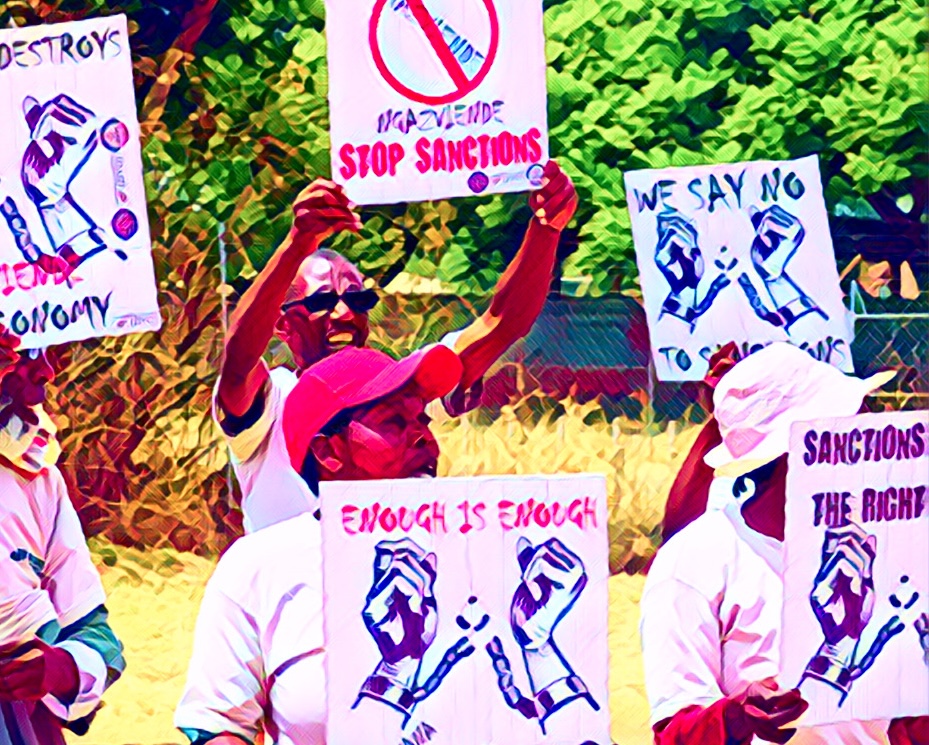KEY POINTS
- US Ambassador Pamela Tremont dismisses Zimbabwe anti-sanctions protestors as “just for show.”
- Protestors have been camped outside the US Embassy in Harare since 2019.
- US sanctions remain on key Zimbabwean officials despite the end of broader restrictions.
The United States Ambassador to Zimbabwe, Pamela Tremont, has dismissed the ongoing anti-sanctions protest outside the US Embassy in Harare, where demonstrators have been camped for over five years. Speaking to local news editors, Tremont remarked that the protestors were “just for show” and that the embassy had not engaged them directly.
Long-standing protests at the US embassy
The protest, organized by the Broad Alliance Against Sanctions (BAAS), has persisted since March 2019, with protestors vowing to remain outside the embassy until US sanctions on Zimbabwe are lifted.
In March 2024, US President Joe Biden ended the broad sanctions program imposed on Zimbabwe in the early 2000s, which followed the violent seizure of land from white commercial farmers.
The original sanctions were based on executive orders issued in 2003, 2005, and 2008, targeting individuals linked to corruption and human rights abuses.
However, even after ending the broad sanctions program, the US imposed new restrictions on certain Zimbabwean officials under the Global Magnitsky Act.
This act allows for targeted sanctions against individuals involved in human rights violations and corruption. Key figures who remain on the sanctions list include Zimbabwean President Emmerson Mnangagwa, his wife Auxillia Mnangagwa, Vice President Constantino Chiwenga, and several other high-ranking officials.
Ongoing debate over sanctions
While the US government maintains that the sanctions target specific individuals and entities, Zimbabwean authorities argue that they harm ordinary citizens and should be lifted entirely. Protestors at the embassy echo these concerns, calling for the complete removal of all restrictions.
According to New Zimbabwe, despite the government’s stance, Tremont dismissed claims that the sanctions were illegal. “There is no law against the US regulating its own banks and preventing them from being complicit in corruption,” she said.
Tremont’s remarks come as Zimbabwe prepares for the annual SADC Anti-Sanctions Day on October 25. The day is marked by the Southern African Development Community (SADC) to raise awareness and rally support for lifting sanctions on Zimbabwe. This year’s theme is “Embracing Innovation Towards Vision 2030: The Relentless Fight Against Illegal Sanctions.”
Political and diplomatic implications
The ongoing protests, though largely symbolic, reflect broader frustrations within Zimbabwe over international sanctions. President Mnangagwa and his government have repeatedly called for the removal of all restrictions, arguing that they undermine the country’s economic growth.
However, the US insists that targeted sanctions are necessary to address human rights violations and corruption.
Tremont’s comments highlight the ongoing diplomatic tensions between Zimbabwe and the United States over the issue, with no immediate resolution in sight.


